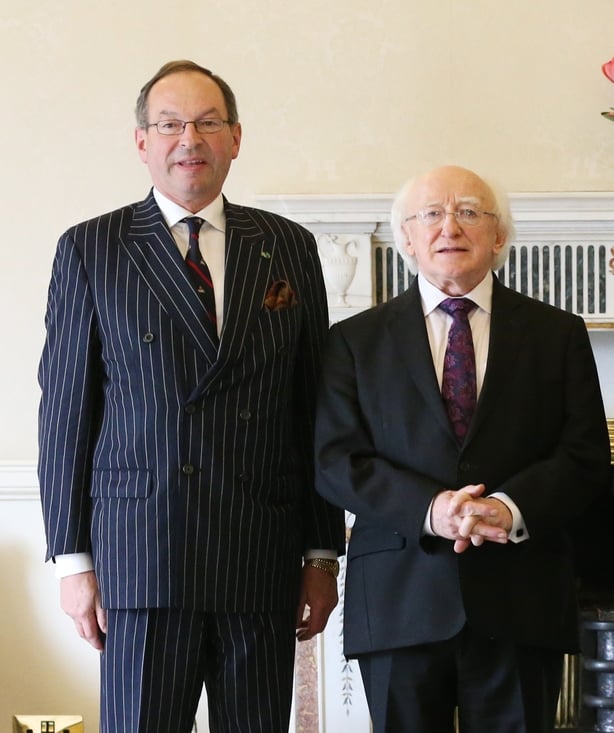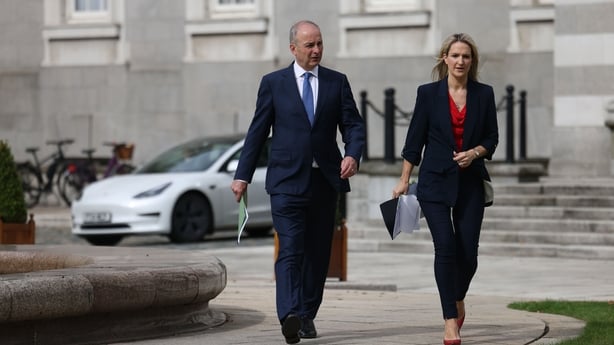A former High Court judge has said that the Government's bill to overhaul defamation law "strikes at a civil liberty at a right which citizens have enjoyed as part of our law for 800 years".
Bernard Barton also claimed that the bill ignores a recent "watershed decision" from the Supreme Court which now permits giving juries "guidelines on values appropriate to the facts of the case".
This is done "in order to avoid the risk at all of disproportionate awards," he added.
Judge Barton said that abolishing juries in these trials, as the Government proposes, means that a "judge is going to decide the damages, but is also going to decide whether or not somebody has or hasn't been defamed".

'Gets the balance right'
He was reacting after the Government approved long-awaited legislation to overhaul defamation laws.
The new legislation will abolish juries in High Court defamation actions, among other measures, and is due to be published next week.
The Government believes it will tackle the issue of excessive damages being awarded in such actions - awards that have often been substantially reduced on appeal.
The Defamation Bill also aims to reduce costs for those seeking to defend their good name, in particular in relation to unnamed trolls online - which at the moment can only be done in the High Court.
The bill will also introduce protection against so-called SLAPPs - Strategic Lawsuits Against Public Participation.
SLAPPs, which are often taken against individual journalists, are recognised internationally as a threat to press freedom and democracy.
Speaking in Dublin, Tánaiste Micheál Martin said: "Freedom of the press is the essential cornerstone of our democracy, and we have to protect that at all costs.
"We do need of course to balance that safeguarding and freedom of expression with the right to the protection of good name and reputation and the right of access to justice.
"I think the bill gets the balance right and strikes the right balance in that regard."
Bill will protect defendants, public debate - McEntee
Regarding SLAPPS, Minister for Justice Helen McEntee said the bill "will introduce protective measures against SLAPPs, again to protect defendants who are being targeted manifestly and unfoundedly".
It will also protect against abuse of legal proceedings, which the minister says are used to "stifle public debate and to prevent a public interest or investigative journalism".
She added: "We cannot allow our defamation system to be abused in other ways as well and what we've seen in recent years is defamation being used against our retailers, which is increasing the cost of insurance for those retailers as well."

"What we've seen in recent years is defamation being used against our retailers, which is increasing the cost of insurance for those retailers as well.
"We will ensure that where a person might launch a defamation case that they're asked to produce a receipt after walking past a checkout perhaps, that there is a fair and reasonable defense for that retailer, which currently doesn't seem to exist."
While not yet part of the bill, it is planned that the Circuit Court will be granted power to issue a Norwich Pharmacal order - which directs digital service providers to identify anonymous posters of defamatory material online.
At present, only the High Court can issue such an order, making it prohibitively expensive for most would-be applicants.
Unacceptable model of revenue generation in fake ads - Martin
Tánaiste Micheál Martin himself had to apply to the High Court for a Norwich Pharmacal order last year, when fake ads appeared online which he said were used to defame him.
Mr Martin said this morning that the fake ads "seem to have originated from jurisdictions in Belarus and Russia".
"It seems that stolen credit cards were used to pay for the ads. Notwithstanding the fact that we've received the high court order, I've written again to Google, [regarding the] suspected ads that appeared on Google, to get further clarity on the steps it now intends to take," he added.
Mr Martin said there seems to be a model of revenue generation in these cases that is unacceptable, adding that they have had great difficulty in identifying the people who actually pay for the ads.
He went on to say that while Google had cooperated fully, the amount of documentation they supplied was very difficult to go through forensically.
He said the social media platform X was far less cooperative in relation to fake ads in the run up to the Referendums on Family and Care.
Minister McEntee said the bill would be worked on over the summer to include any elements that had not been finalised before the summer recess but was hopeful to introduce the bill to the Dáil in the autumn.
"We will absolutely get them done in time and obviously, we're working on a lot of things when we return in September and I hope that we can get many things across the line including this Defamation Bill."
The Tánaiste said he hoped that the Opposition would cooperate in terms of getting the legislation through in the autumn.
"I think if we can get reasonable cooperation and opposition level, we could get this through the house in the opposition."
This would depend on an election not taking place this side of Christmas.
The Government has repeatedly stated it wants to run its full term until next March, but there has been speculation that a general election could happen before then.
We need your consent to load this rte-player contentWe use rte-player to manage extra content that can set cookies on your device and collect data about your activity. Please review their details and accept them to load the content.Manage Preferences
Additional reporting Orla O'Donnell







